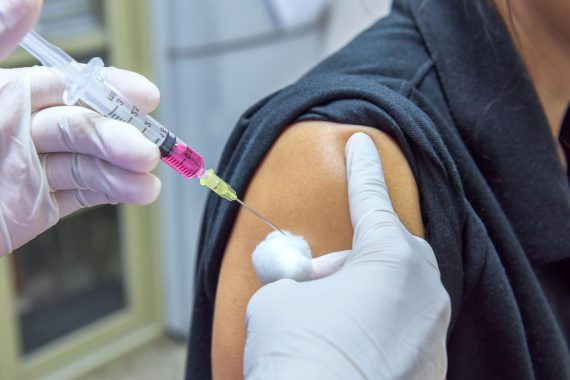Wednesday’s announcement is separate from the booster programme, which would see a larger number of people offered a third COVID va vine jab. The booster is reported to be ained at strengthening the immune sysems of vulnerable people.
The data used to inform the JCVI’s decision comes from studies of MRNA vaccines, namely the Pfizer/BioNTech and Moderna jabs. These have both been shown to produce robust immune responses in healthy people and have good safety records.
Participants in the “Octave” study – led by the University of Glasgow – included a wide range of other ailments in their experimental research , including those with cancer, end-stage kidney disease, and chronic conditions such as rheumatoid arthritis and inflammatory bowel disease.
The findings from the first 600 immunocompromised participants recruited in the study – showed that about 60% of the participants mounted an antibody response similar to healthy people about four weeks after their second dose.
About 11% had no antibody response (a majority of these were people suffering from vasculitis), while the rest showed a sub-par response, the researchers said in their still to be peer-reviewed report.
“We don’t know what this antibody response means yet. We know that it’s less than the healthy control, but we don’t know whether that means these patients are more vulnerable to Covid-19,” said Prof Pam Kearns, deputy chief investigator of the trial and director of the University of Birmingham’s Institute of Cancer and Genomic Sciences and the Cancer Research UK Clinical Trials Unit.
Those eligible include people with particular diseases such as HIV and blood cancer, which can impair the immune system, and those on he kind of medication that weakens immunity.
Case by case Basis
Under the scheme, GPs and consultants will decide on a case-by-case basis when individual patients are most likely to mount the best response to shots. According to statistics held by the Office Of National Statistics (OFS) ,individuals with impaired or suppressed immune systems are more likely to be severely ill if they contract the virus.
In June, the JCVI urged the NHS to prepare for a booster roll out starting in September, pending a final decision in the summer, but ar awaiting more data on the benefits of going ahead with plans.
Scientists like Prof Sir Andrew Pollard have warned that pushing for boosters will be at he expense 9f poor countries which still have a large unvaccinated population due to he scarcity of vaccine supply 8n yose countries.
The idea of a third COVID jab is already bothering critics of he vaccination drive who seethe extension of he two vaccines as an 8ndication of a money making scheme , designed t0 gradually maximise profits by introducing an extra vaccine dose to the population.
However, the fact the third vaccine jab is not being offered to everyone in the population , distingusihesit from the first two shots and focuses its attention on those who need it most.
The announcement confirms what was already known which is that the fost two doses of the vaccine do not offer full protection against COVID-19, but offer only limited protection which varies from person to person.
The third vaccine offers no guarantee that the virus will not evade the protection offered by all three vaccines for those with weak immune systems. At this stage, the claim is that it offers more protection than he other two vaccines for those who weak immune sysems.
Some pressure groups have contacted his publication, demanding we take a stand against the drive to offer the vaccine to children as young as 12.
A number of agitated parents protesting against vaccinations for school pupils this coming term claim the Uk government plans to authorise schools to allow children as young as 12 to take the vaccine without parental consent.
The government says those children of about 12 who are recognised as vulnerable may need the vaccine , but PHE England today confirmed to this publication that children under the age of 16 will need parental consent to be vaccinated, contrary to false information be spread in some circles.
The announcement last night from the Government’s Joint Committee on Vaccination and Immunisation (JCVI) last night that around half a million of the most severely immunosuppressed patients will be prioritised for an extra dose should not cause alarm , but be seen as an initiative to help those who feel most vulnerable to he virus.
Those who have fallen seriously illndespite being double vaccinated, may for example consider themselves need8b a third jab. More so, if hey suffer from serious underlying issues.
The committee is still deliberating on whether booster jabs should be offered to the wider population, and waiting for more evidence on the benefits of giving an additional dose




